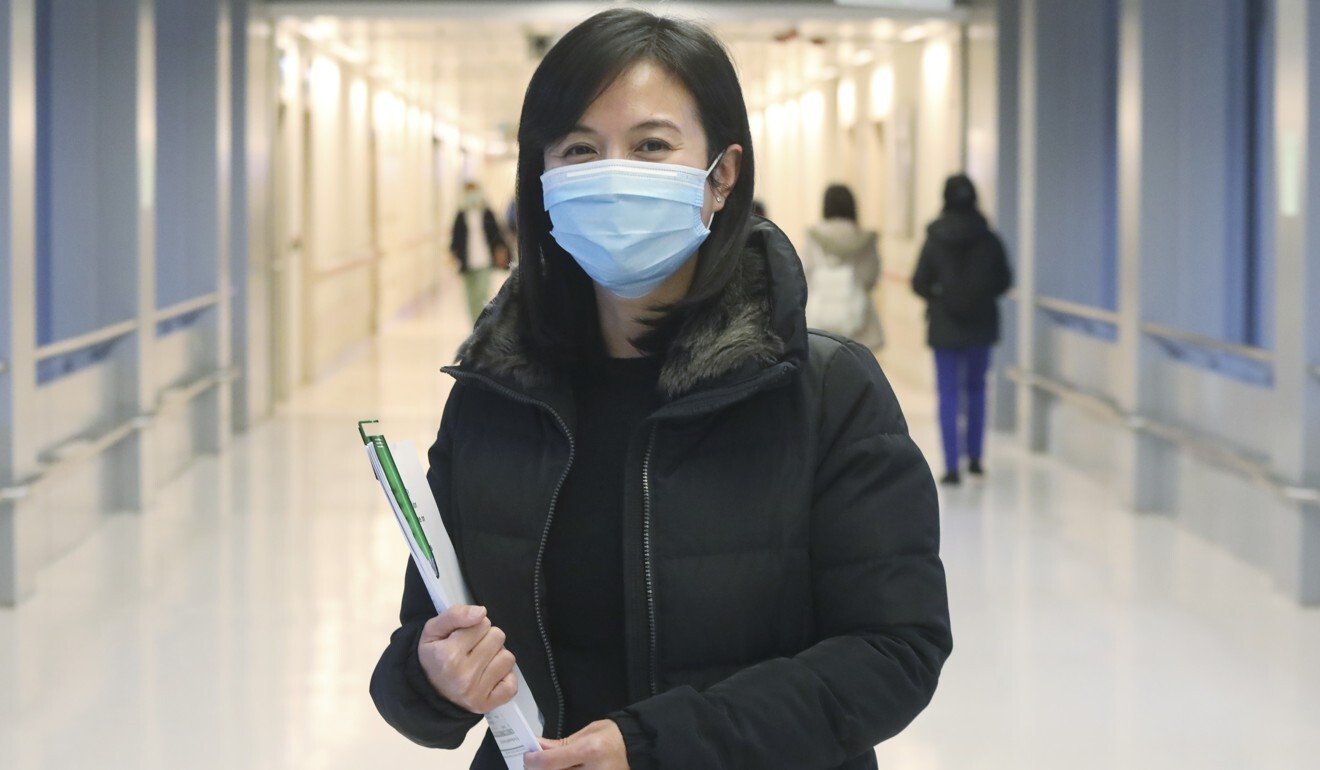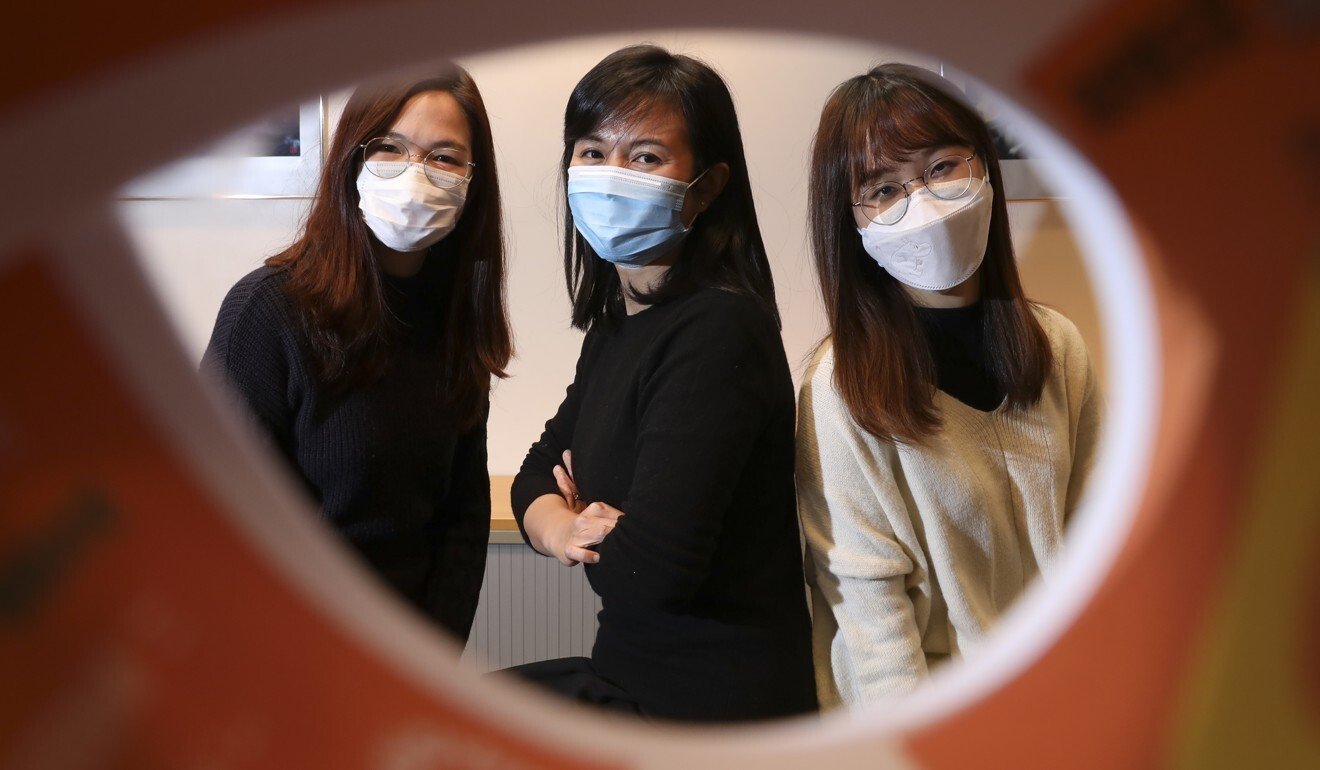Young Hongkongers feel marginalised and ignored, says academic who led six-month trust study.
Hong Kong officials should let high school students take charge of creative plans to upgrade their communities to help young people regain trust in the government and society, a team of experts has said.
It also urged bureaucrats and community leaders to work alongside and guide young people in such projects, instead of creating new public bodies or engaging them in a top-down manner.
“Young people want opportunities that allow them to create an impact on the community,” said assistant professor Angel Lai Hor-yan, a social work researcher and developmental psychologist specialising in youth issues at Chinese University (CUHK).
She led a six-month study on social trust among young people last year.
Top officials, academics and youth experts sat up and took notice after Lai and University of Hong Kong (HKU) Professor Terry Lum Yat-sang revealed on a radio programme on January 3 that a survey had found that 87 per cent of students had no confidence in the government.
Lum, who heads HKU’s Department of Social Work and Social Administration, described young people’s simmering grievances as a “powder keg waiting to go off”.
Lai did not go into details of what the study revealed, but mentioned on the programme that young people should be given a bigger say in policymaking so they could feel respected in society.
The study was done by a team from CUHK, HKU and Baptist University from April to October last year and its report has yet to be made public.
It was funded by the government think tank, the Policy Innovation and Coordination Office, which had been tasked by city leader Carrie Lam Cheng Yuet-ngor to encourage young people to play a bigger part in formulating public policy.

‘Worrying lack of trust in people’
In an interview on January 11, Lai said Hong Kong’s young people were marginalised by the older generation who regarded them as a group that did not understand what life was about.
“The older generation see young people as not appreciative of the Hong Kong they have built,” said Lai, who is in her 30s. “Yet, we seem to have forgotten that the world has changed, and so have the needs of young people.”
She also highlighted what she regarded as a mismatch between what young Hongkongers actually want and they are perceived to be looking for.
“We always think young people are upset because they do not have upward mobility, cannot afford housing, or do not get promotions [at work],” she said. “But young people are not looking for these things. They are looking for a way to contribute to society.
“They want to have a say at work, to be regarded as important members of their community. Unfortunately, this is not happening and this is not what the government thinks young people need.”
Lai said it was that “mismatch of expectations” that caused a high level of distrust among the young, and it was the feeling of being ignored that fuelled their negative perceptions of the government.
Lai spoke to the Post with two of her research assistants involved in the project, from CUHK’s Jockey Club School of Public Health and Primary Care.
The study comprised an online poll of 250 students in Form Four to Form Six from 34 schools, as well as in-person interviews and focus group discussions with 56 students, district councillors, social workers, teachers, government officials and grant providers.
Explaining the finding that raised eyebrows, that 87 per cent of young people had no confidence in Hong Kong’s government, Lai said this comprised 67 per cent who indicated that they had “no confidence at all” in the government and another 20 per cent who said they “do not have much confidence”.
About 3 per cent said they had “some confidence” or “very much confidence” in the government, while about 9 per cent said they were “neutral”.
Asked to what extent they agreed with certain statements, pupils gave an average score of only 2.65 out of 10 for “government policies can meet the needs of secondary school students”. The statement “government has involved young people in policy formulation” scored 2.66.
Researchers found it more worrying that most respondents lacked trust in people in general, with about 74 per cent feeling a “need to be very careful” with people, while only 25 per cent said “most people can be trusted”.
Asked whether they thought their neighbours could be trusted, about 25 per cent replied “agree” or “strongly agree”, while about 20 per cent chose “disagree” or “strongly disagree”. The rest chose “neutral” or “don’t know” as their response.
Asked whether their neighbours were willing to help one another, about 30 per cent said yes, while about 20 per cent said no.

‘Stop regarding young as trouble’
Lai said the research showed the government’s failure to engage young people in policy formulation, even though city leader Lam had appointed Chief Secretary Matthew Cheung Kin-chung as chairman of the Youth Development Commission (YDC), with the aim of improving the administration’s communication with the younger generation.
“Young people tend to find platforms such as the YDC or the district youth development networks under the Home Affairs Department too untrendy, out-of-touch with the young and only for the elite,” she said, citing feedback from the focus groups.
Her research assistant, Wong Kin-yu, said that for young people to feel that they have a stake in society, officials and the older generation needed to change their mindset.
“Don’t always regard young people as a source of trouble … They are actually part of the community. For anything to succeed, one needs the buy-in of young people,” Wong said.
Lai’s team has proposed that the government do away with its top-down model of youth engagement, and establish a bottom-up “co-production” approach.
She said community improvement teams drawing together government officials, social workers, district councillors and students should be set up. The teams should let young people experiment and initiate activities or events they think can help upgrade the living quality of their neighbourhoods, she added.
“Whether it is creating street art or erecting more pedestrian signposts in their neighbourhoods, young people have innovative ideas. But they also know they can’t do all things on their own,” Lai said.
“They may need district councillors or social workers to help conceive their projects, and officials to help navigate red-tape, and community leaders to help find sponsorship.”
Research assistant Cynthia Leung Tsz-ching said equality between young people and other members of such teams would be key for the success of such an approach.
“When young people and various stakeholders can sit down and work together to complete a project, the young people can feel they are respected,” she said.















